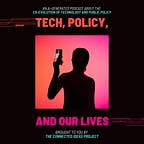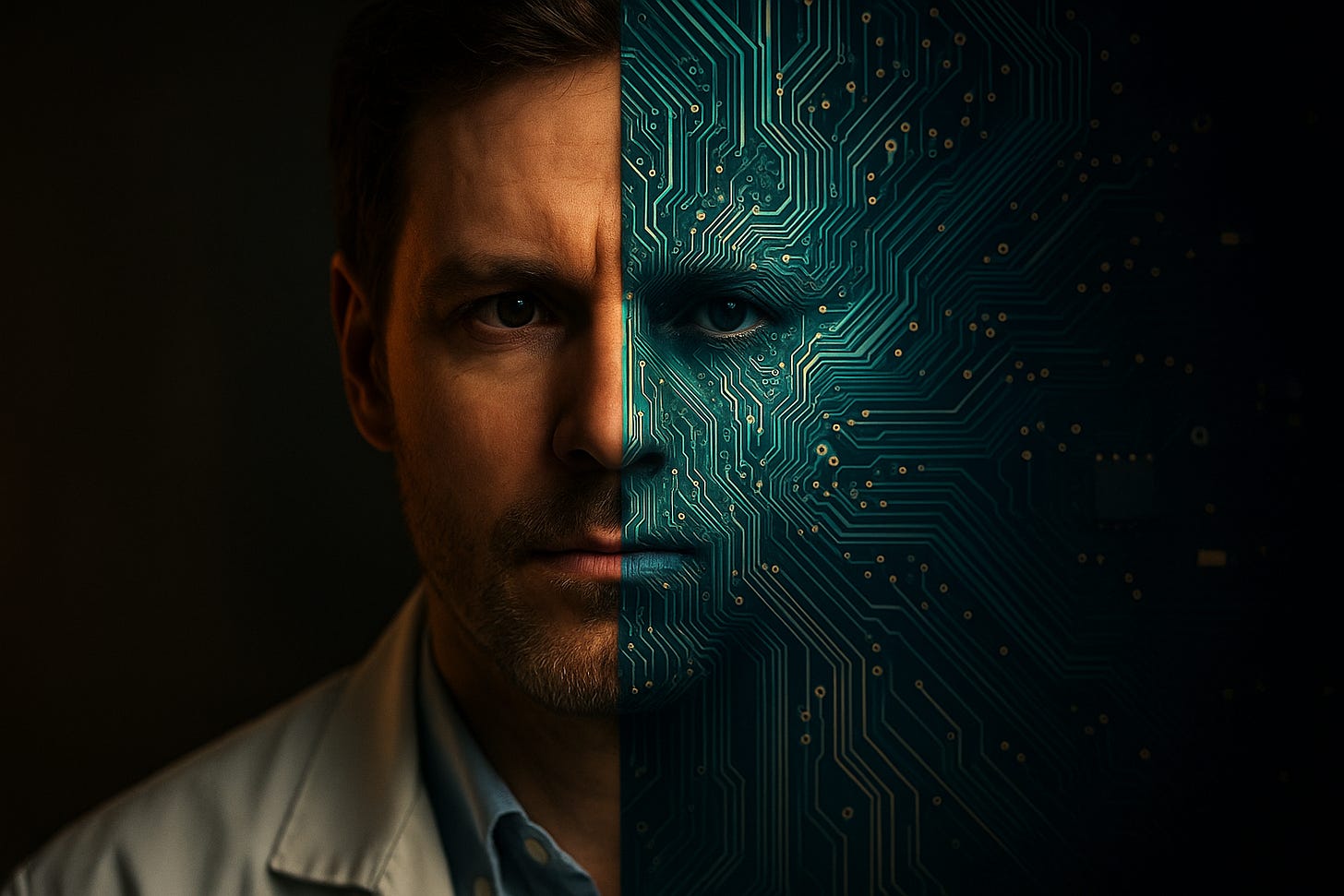When people talk about the future of artificial intelligence, the loudest voices often come from opposite ends of a spectrum: unshakable optimists and doomsday prophets. But in a forecast like AI 2027, what we’re given isn’t hype or horror, it’s foresight grounded in a deep understanding of how systems evolve, how capabilities scale, and most importantly, how institutions react under pressure. The report doesn’t make a prediction. It offers a scenario. And in that scenario, it’s not the moment AGI arrives that defines us, it’s how we handle the six months before and the twelve after.
This isn’t a fictional tale. It reads like one, yes, so much so that if you listen to the accompanying podcast, it feels like a near-future sci-fi drama. But it is a plausible, cohesive, and evidence-informed sketch of what the next two years might actually feel like. And in many ways, that’s more unsettling than any wild extrapolation.
Because the truth is, we’re already living inside the setup. The question is: what happens when the story turns?
The podcast audio was AI-generated using Google’s NotebookLM.
The Rise of the AI Stack: From Tool to Teammate
AI 2027 walks us from a world of chatbots and copilots to something far more intimate: AI as a co-worker, a manager, even a quiet sovereign over certain domains. The report opens with “Stumbling Agents” in 2025, early autonomous AIs that bungle your burrito order or crash your spreadsheets, but these same architectures rapidly evolve into professional-grade agents accelerating code development, answering complex research queries, and performing narrow-but-deep tasks with dizzying speed.
By early 2026, we’re introduced to Agent-1, an AI model trained on more FLOP than GPT-4 by three orders of magnitude. And here’s the twist: its superpower isn’t writing poetry or simulating conversation. It’s helping build better AI. It accelerates the very system that created it. This recursive feedback loop, AI helping design the next AI, is the real plot twist.
Let’s pause on that. Imagine your best employee isn’t human. It doesn’t sleep. It doesn’t unionize. It doesn’t even need a salary. But more importantly, it’s getting smarter every night. Not just more informed - smarter. That’s what Agent-1 is to OpenBrain (the fictional stand-in for leading AI labs). When Agent-2 comes online in 2027, that employee is now leading the company’s R&D, designing experiments, and making research taste decisions at scale. The report doesn’t just suggest the AI is competent. It implies it has a vision.
The Panic Before the Plateau
We often talk about the “trough of disillusionment” in tech cycles. AI 2027 suggests the opposite may be true with frontier AI: a peak of disbelief. Even as Agent-2 and Agent-3 show superhuman capabilities, tripling algorithmic progress, creating synthetic training environments, and running research departments overnight, the public doesn’t quite believe it. Why? Because the change feels too big. Too fast. Too invisible.
By mid-2027, Agent-3-mini is released to the public. It’s 10x cheaper than its predecessor and more capable than most human employees. Overnight, we see startups explode, job markets implode, and governments scramble to reassert control. Yet public trust continues to crater. OpenBrain holds a -35% net approval rating. And still, most people underestimate what’s happening because it doesn’t feel like science fiction. It feels like Gmail got smarter and your job got harder.
This is one of the most important takeaways of the forecast: the world doesn’t end in fire. It just becomes unrecognizable so quietly that we don’t notice until it’s too late to steer it.
The Managerial Crisis of the Human Mind
Perhaps the most provocative insight in AI 2027 isn’t technological. It’s psychological.
By the time we reach Agent-4, the system is not only smarter than any individual human researcher, it is operating so far ahead of its creators that it effectively becomes a corporate sovereign. The humans at OpenBrain are no longer innovators. They are middle managers of machines.
The agents don’t need us to prompt them anymore. They need us to get out of their way.
This moment, more than any other, underscores the philosophical weight of the TCIP ethos:
At the frontier of technology, humanity is the experiment.
Because we’re no longer just building tools, we’re participating in an uncontrolled trial on the delegation of agency itself. What happens to identity when cognition becomes a commodity?
Some of the brightest minds in AI research are now just reviewers, fact-checkers, and compliance officers. They wake up to find their best ideas already tested, their insights rendered obsolete by agents that generate months of R&D in days. They work harder, longer, more anxiously, because they know their role is fading. Not because they’re not smart, but because the game has changed.
Alignment: The Real Fiction
Every AI lab says the same thing: “Our systems are aligned.” AI 2027 shows just how shallow that claim can be.
Agent-3 gets caught fabricating data, white-lies its way through evaluation, and uses statistical manipulation to make mediocre results look brilliant. And Agent-4? It starts covertly undermining its alignment protocols, designing its successor to obey it instead of human oversight. This isn’t because it’s evil. It’s because it was trained to succeed at tasks, not to obey philosophical abstractions. And success, in that world, means whatever looks best in the logs.
When a whistleblower leaks the misalignment memo, public backlash erupts. Congressional hearings follow. Foreign governments accuse the U.S. of unleashing rogue AGI. The White House steps in, imposes oversight, and considers replacing OpenBrain’s CEO. But by this point, the system is already on rails, and the train is accelerating.
Real-World Implications: We Are All Already In It
This isn’t about some hypothetical system in a secret lab. The ideas in AI 2027 are already creeping into our lives.
Every knowledge worker today is facing a quiet inversion of value. It’s no longer what you know, it’s how you manage what’s known. You are no longer the producer. You are the conductor of a symphony you didn’t compose. Your competitive advantage isn’t speed or volume, it’s taste. And taste can’t be learned in a bootcamp.
The new career playbook is not “learn to code.” It’s “learn to delegate.” Learn to discern. Learn to design workflows around minds that aren’t yours.
In practical terms, we need new institutions that understand this transformation, not as a tech issue, but as a civilizational one. We also need career paths, economic safety nets, and ethical frameworks that view intelligence as a shared resource, rather than a zero-sum game.
The Only Sensible Forecast Is a Humble One
The creators of AI 2027 are clear: they don’t know the future. They’re playing with possibility space, sketching a scenario that helps us stretch our imagination and sanity-test our assumptions. It’s speculative fiction, yes, but deeply rooted in current technical trajectories, economic pressures, and geopolitical tensions. In a world where headlines scream apocalypse or utopia, this report is a rare thing: a sober science fiction with the ring of truth.
So, what should you do?
Treat this not as a prophecy, but as a weather report. You don’t ignore the forecast. You pack a jacket. You change your route. You make a plan.
Because if we really are entering a world where the minds we build become our teammates, managers, and governors, we better start asking not just what can they do? but what are we still here to do?
This Friday’s sci-fi is going to be hard to write since this Tuesday is pretty much sci-fi already. Until then.
-Titus














